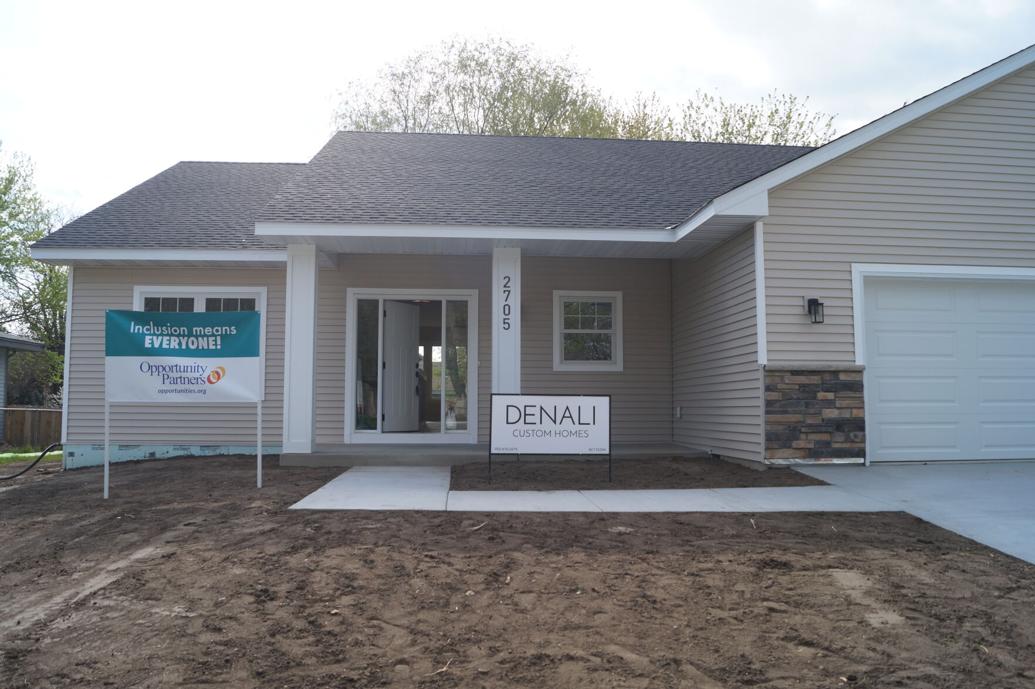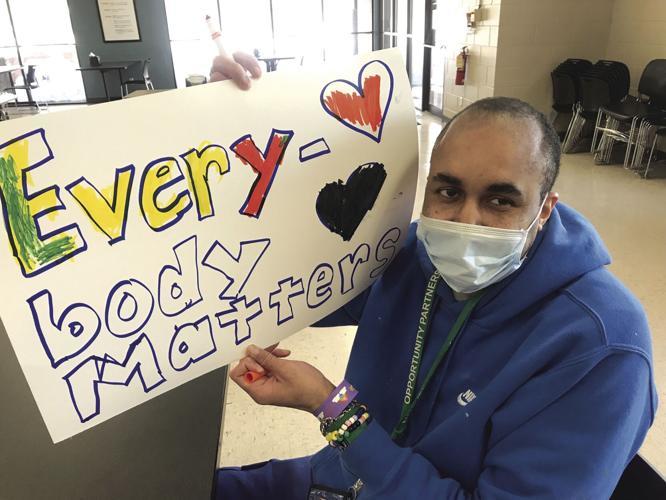Sun Sailor: Disability service providers rally for legislative support
Disability Services Day focused primarily on current staffing shortages
March 17, 2022 by Jason Jenkins
A pair of local disability service organizations recently took part in rallying for legislative support as part of this year’s Disability Services Day.
Typically held in person at the Minnesota Capitol, this and last year’s rallies were hosted online as a COVID-19 safety precaution, with a virtual “rally” inviting in individuals with disabilities from around the state and those who work to support them.
“We had a Zoom link with a capacity for something like 1,000 people, and they ran out of capacity and had to bump people over to Facebook Live. … People made signs and held them up, which kind of helped create that rally feeling,” said Mary Gaasch, director of advocacy and community relations for Hammer Residences, a Wayzata-based nonprofit organization that provides support services for individuals with developmental disabilities. The organization has more than 46 homes and apartment programs, with staff serving more than 270 adults throughout the western suburbs.
 Throughout the day on March 8, rally participants virtually sat in on House and Senate meetings and spoke with state legislators.
Throughout the day on March 8, rally participants virtually sat in on House and Senate meetings and spoke with state legislators.
A focus point for this year’s rally was around the staffing shortages at disability service organizations around the state.
“It’s a real workforce catastrophe for disability services,” Gaasch said. “There are providers who are shutting down programs, sending people home and moving people back to larger facilities, which is taking us back in time and undoing 40 years of progress.”
According to the leaders with Minnesota Organization for Habilitation and Rehabilitation, which organizes Disability Services Day along with ARRM and the statewide coalition Best Life Alliance, many organizations providing employment and day enrichment supports to people with disabilities had to shut down at the start of the pandemic to best protect the health and safety of the individuals they served.
Once able to reopen, many of these organizations were unable to find staff to return, with many leaving the field for better paying opportunities. As staff wages for disability services fall further behind market rates, employment and day support programs face long waiting lists as their capacity to serve shrinks.
“Minnesota is experiencing a dire shortage of workers to provide disability services, and providers reported more than 3,500 people on waiting lists,” MOHR President Julie Johnson said.
Johnson and others are calling on support from the legislature by passing bills (SF 2771 and HF 3100) for long-term solutions, including adjustments to Minnesota’s Disability Waiver Rate System to use more current economic data to update the state set reimbursement rates that service providers use to pay their staff and provide services.
Another set of bills (SF 2968 and HF 3268) is designed to address staffing shortages of direct support professionals by providing immediate short-term steps to help stabilize the workforce through employee scholarship grants, childcare relief and one-time retention payments for staff.
“One-time money can and will help in the short term, but we also need solid support from the legislature and governor for long-term solutions,” Johnson said. “Simply put, if we as a state value Minnesotans with disabilities living full and meaningful lives, our state set reimbursement rates have to be set at a level to pay for the staff supports necessary to make that possible.”
 Another local organization taking part in the rally was Opportunity Partners, a Minnetonka-based nonprofit providing employment, enrichment and residential services for people with disabilities in Minnetonka, Plymouth and 20 residential group homes and three apartment programs throughout the metro.
Another local organization taking part in the rally was Opportunity Partners, a Minnetonka-based nonprofit providing employment, enrichment and residential services for people with disabilities in Minnetonka, Plymouth and 20 residential group homes and three apartment programs throughout the metro.
Bill Schultz, president and CEO of Opportunity Partners, said staffing issues have reached a critical point, with some providers having to close and some group home providers unable to hire staff because they can’t offer rates that are competitive with the current market.
“The biggest thing is … how can we find ways to get the rates up so we can pay more competitive wages?” Schultz said. “I think there’s a lot of things that we could do around that and just working the Department of Human Services and our legislators to get it done.”
Schultz said another key component in the effort is to create a better awareness around the jobs and the important work that disability service organizations provide in the community.
“It’s really rewarding work for folks. … And I think all of these organizations have a really good culture because they’re driven by the mission and people feel good about what they do,” he said.
To learn more about the local disability service organizations, visit hammer.org and opportunities.org.
To learn more about ongoing advocacy efforts, visit arrm.org and mohrmn.org.